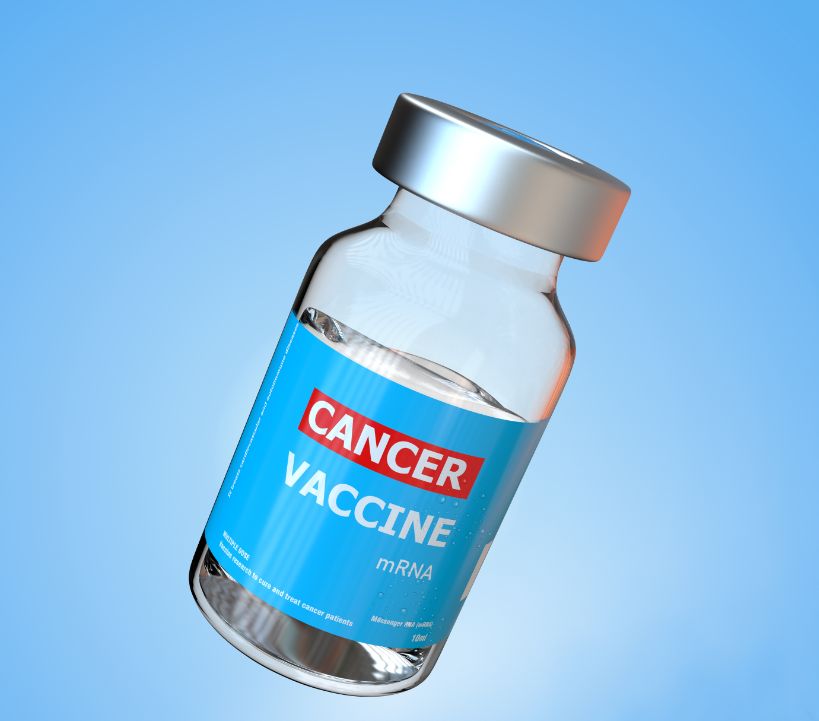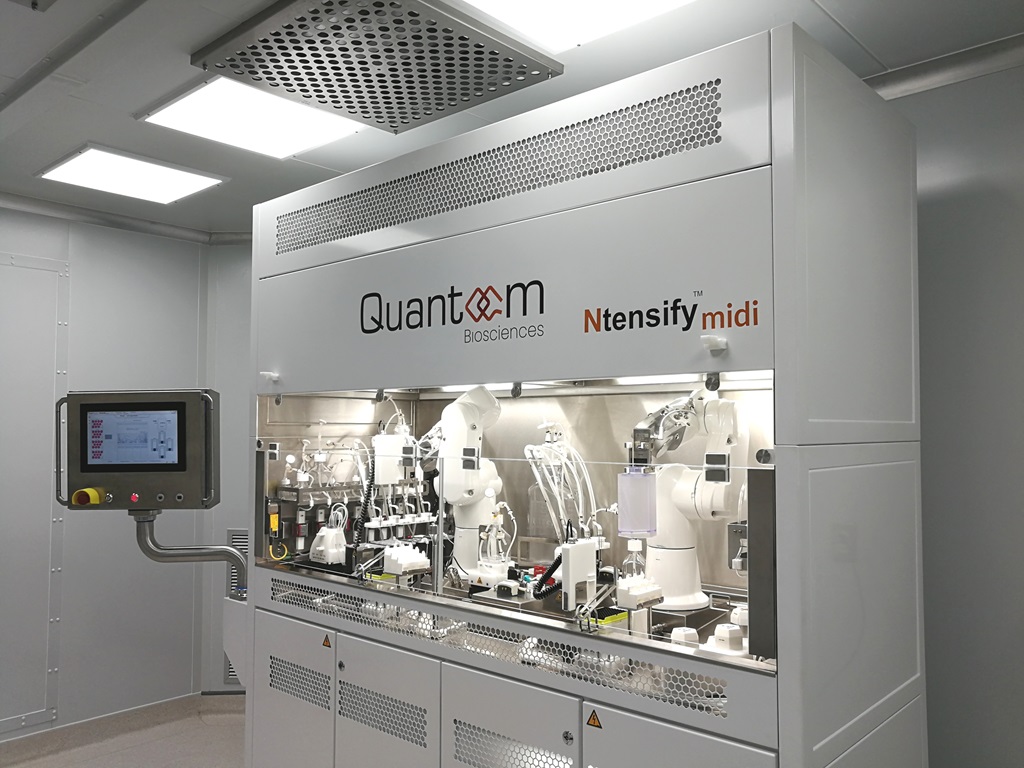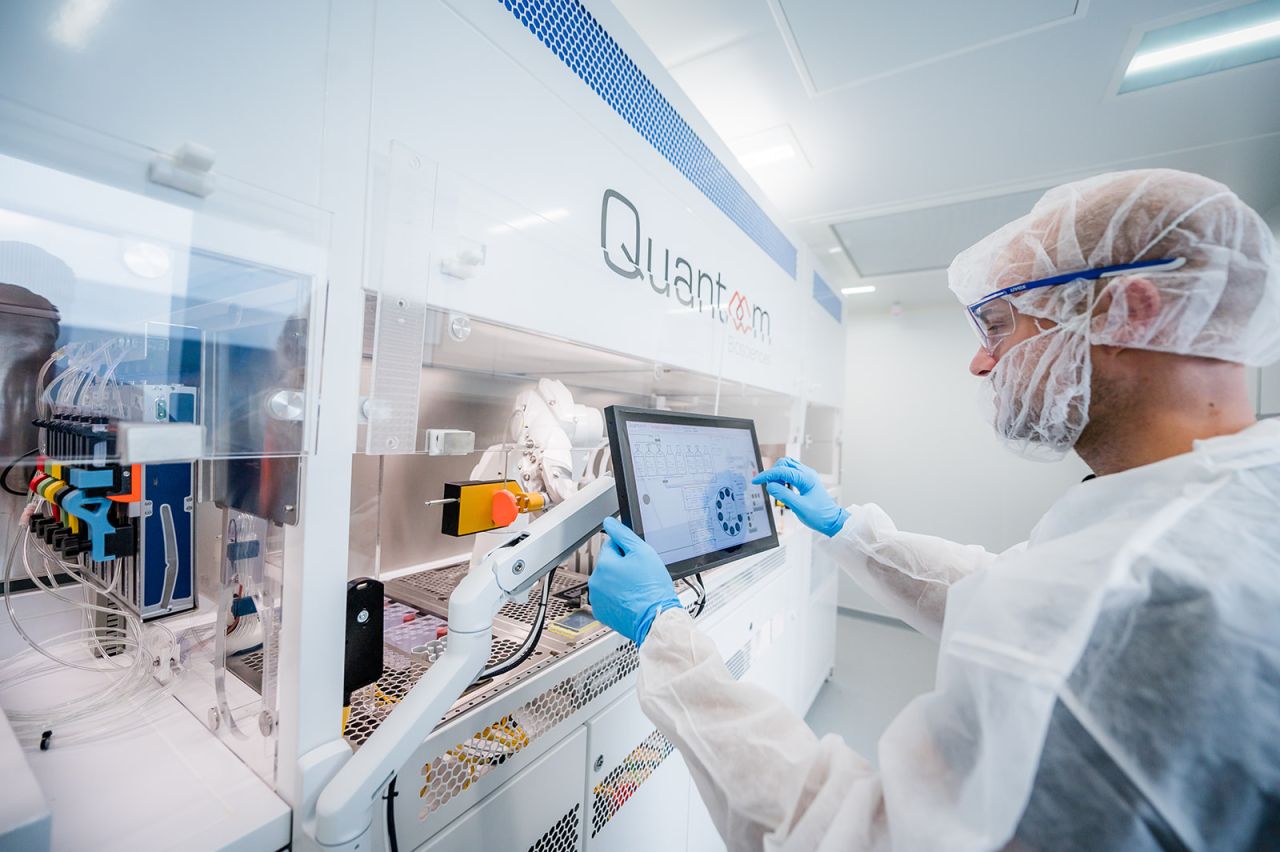Articles
December 11, 2023
Novel continuous RNA manufacturing process could pave the way for personalized neoantigens cancer treatments

Table of Contents
A new class of target may hold the key to more effective cancer treatments. Neoantigen-targeted cancer vaccines can create personalized treatments for patients where conventional treatments have failed.
The DNA mutations that cause cancer may lead to cells producing entirely new proteins. Called neoantigens, these new and unfamiliar proteins can be good targets to create a vaccine that can stimulate T-cells to attack the cancer. RNA or DNA vaccines can be created instead of using the neoantigens themselves. These vaccines instruct cells in the body to translate the RNA or DNA into the neoantigens, which can then activate an immune response.
The DNA mutations that cause cancer are often unique to an individual. This makes it possible to create personalized treatments for a particular patient. Compared to broader cancer treatments, these treatments have fewer side effects as they are specific to the individual.
The key to treating cancers in patients – especially when all other options have failed – is making the right quantity of an individualized therapy quickly. Fortunately, mRNA can be manufactured rapidly compared to antibodies or protein-based drugs. This has generated significant interest in RNA-based oncology treatments. According to Citeline*, 217 therapies are now in pre-clinical or clinical development.
One example of a neo-antigen vaccine clinical trial was published in Nature on May 10, 2023. Collaborating with BioNTech, the Memorial Sloan Kettering Cancer Center has created a personalized mRNA cancer vaccine against pancreatic ductal adenocarcinoma. This is the most common and deadly type of pancreatic cancer. The approach targeted up to 20 specific pancreatic neoantigens from the cancer cells in 19 patients. Initial results are promising.
However, current pharmaceutical manufacturing processes are not designed to create customized treatments for individual patients. They remain focused on the mass production of one particular therapeutic. This inflexibility is an issue for personalized neoantigen-targeted RNA cancer vaccines. They are highly individual and need to be delivered to the patient within four to twelve weeks if they are going to be effective in treating aggressive or incurable forms of cancer. This simply isn’t possible with conventional RNA therapeutic manufacturing processes.
Not only do these personalized therapies need to reach the patient quickly but they need to be affordable too. The cost of manufacturing a different dose for each individual patient can be considerable. Speed and cost of delivery will be crucial factors for the success of neoantigen cancer vaccines.
Exothera Nucleic Acids is a CDMO with a continuous RNA production platform. They can create RNA vaccines at any scale from 100 milligrams to five grams per batch in four to eight weeks rather than four to eight months. The critical aspect of this process involves using a standardized and scalable approach. This can be expanded to produce multiple batches of the same volume, rather than increasing the batch size.
Robots conduct the majority of the steps. The benefits of this entirely automated process are:
• the risk of contamination is minimized,
• it enhances precision,
• produces extremely low levels of impurities which ensures downstream purification is quicker.
“The process is highly efficient from a production standpoint but it’s also more straightforward from a regulatory standpoint. We’re not changing the process when we produce more material,” commented Dr Patrick Thiaville, Chief Technology Officer for Exothera Nucleic Acids. He continued, “The process is set regardless of the volumes we manufacture which means nothing changes. All of this contributes to the speed of production and lower cost per dose.”
Exothera’s parent company Univercells, has a stated aim to support the creation of a globally distributed manufacturing network to increase access to medicines. Thiaville says the way to achieve this is to provide a machine-driven approach using robots that operate a set process so that manufacturing can be taken where needed such as a point-of-care setting, in a clinic or nearby production facility. “This may even enable lower-income countries to bypass legacy cancer treatments and move to personalized therapies that offer greater chances of being curative” concluded Thiaville.
*Source: Pharmaprojects, Citeline, July 2023
Other articles

March 05, 2024
Advancing Equitable Vaccine Access: mRNA Technology Transfer Program’s Role in Democratizing Vaccine Development and Production.

September 11, 2023
Univercells’ presence in the World’s biotech hub: a significant leap for RNA vaccine manufacture

September 11, 2022


Share